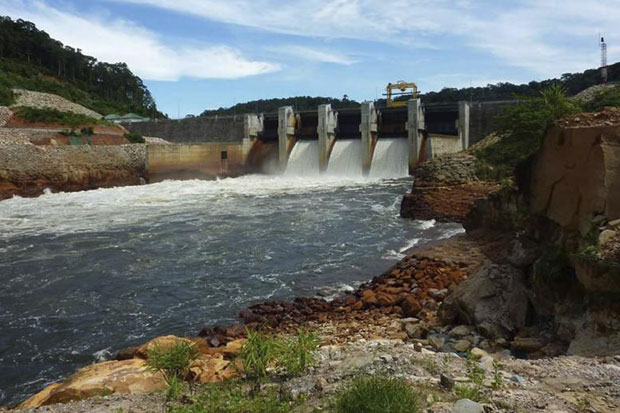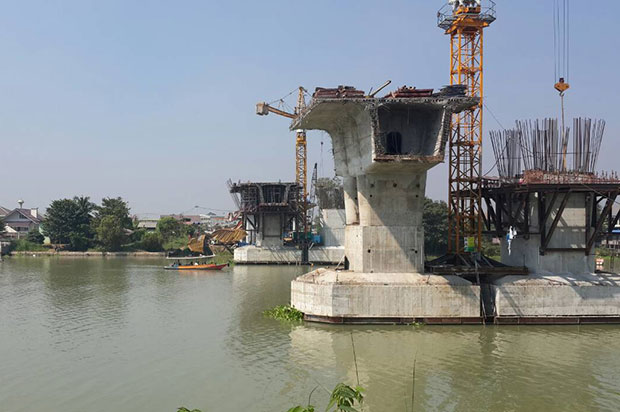The government approved a draft memorandum of understanding (MoU) yesterday to purchase electricity from the Nam Thuen 1 hydropower project in Laos.
The draft MoU was endorsed by the National Energy Policy Committee chaired by Prime Minister Gen Prayut Chan-o-cha, which will see Thailand buy 520 megawatts of power in 2022 worth 2.67 baht per unit from Nam Thuen 1 hydropower project, which is located in Bolikhamsai province. The project is slated to produce a combined 650 megawatts of power.
Under a 2008 power purchase agreement with Laos that is set to expire this year, Thailand is to buy a combined 7,000 MW from 2008-19. Thailand is committed to buying 5,421 MW from Laos this year.
Energy Minister Gen Anantaporn Kanjanarat said Thailand was looking for additional power supply from Laos, but insisted the electricity deals from neighbouring countries will be based largely on the principle that it is only for energy that Thailand cannot produce.
Six hydropower plants now feed Thailand’s power grid.
Four other power plants are under construction that are expected to sell another 2,334 MW to Thailand. They are due to start operating between this year and 2019.
They comprise the coal-fired Hongsa power plant (with a capacity of 1,878 MW), Xe-Pian Xe-Namnoy hydroelectric plant (354 MW), Xayaburi hydropower plant (1,220 MW) and Nam Ngiep 1 hydropower plant (269 MW).
Hongsa’s 626-MW third and last power generator will come online next March after an investment cost of US$3.71 billion. Its first unit started operation in June and the second this month.
Hongsa is a joint venture between RH International (Singapore) Corporation (40%), a wholly owned subsidiary of Ratchaburi Electricity Generating Holding, Banpu Power (40%) and Electricite du Laos (20%).
Gen Prayut also ordered related agencies to closely monitor the oil price and prepare preventative plans for oil price fluctuation.
Gen Anantaporn said the ministry reported the oil price was predicted to remain unchanged next year thanks to soft demand in light of the world’s economic slowdown and growing alternative energies.
Source: http://m.bangkokpost.com/business/802060


